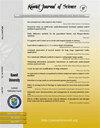Bagging-based heteroscedasticity-adjusted ridge estimators in the linear regression model
IF 1.1
4区 综合性期刊
Q3 MULTIDISCIPLINARY SCIENCES
引用次数: 0
Abstract
The existence of multicollinearity between independent variables and heteroscedastic error has a colossal impact on the performance of the ordinary least square (OLS) estimator and its covariance matrix. In this study, new bootstrap aggregation (i.e. bagging) based ridge estimators are introduced to circumvent multicollinearity by controlling the influence of heteroscedastic error terms. These estimators are a novel combination of bagging and heteroscedastic-adjusted ridge (HAR) estimators. The performance of bagging-based HAR estimators is evaluated using intensive Monte Carlo simulations by considering multicollinearity with low, high, and severe degrees of heteroscedasticity. The findings reveal that at severe heteroscedasticity, the performance of the proposed HAR-HK∗, HAR-LW∗, HAR-HSL∗, and HAR-KMS∗ estimators is 26.3 %, 81.5 %, 90.1 %, and 30.5 % better than their HAR-HK, HAR-LW, HAR-HSL, and HAR-KMS counterparts when the collinearity level is 0.80, sample size is 25, and the number of independent variables is 5. Similar improvements are observed when heteroscedasticity levels are low and moderate, with different specifications for sample size, collinearity level, and number of independent variables. Overall, the bagging-based HAR estimators are efficient and perform better than the baseline HAR estimators. The real-life applications are illustrated using livestock and passenger car mileage data. The outcomes show that the suggested HAR-LW∗ (PRESS = 10.5028) and HAR-KMS∗(PRESS = 0.0497) perform best on the passenger car and livestock data respectively. The improvements will be helpful in efficiently handling the estimation problem when the two challenging issues are present in the data.
线性回归模型中基于bagging的异方差调整脊估计
自变量之间的多重共线性和异方差误差的存在对普通最小二乘估计量及其协方差矩阵的性能有很大的影响。在本研究中,引入了新的基于自举聚集(即bagging)的脊估计器,通过控制异方差误差项的影响来规避多重共线性。这些估计器是套袋估计器和异方差调整脊估计器(HAR)的新组合。基于套袋的HAR估计器的性能通过考虑具有低、高和严重异方差的多重共线性,使用密集的蒙特卡罗模拟进行评估。结果表明,在严重异方差条件下,当共线性水平为0.80、样本量为25、自变量数为5时,所提出的HAR-HK∗、HAR-LW∗、HAR-HSL∗和HAR-KMS∗的估计量比HAR-HK、HAR-LW、HAR-HSL和HAR-KMS的估计量分别提高26.3%、81.5%、90.1%和30.5%。当异方差水平为低和中等,具有不同的样本量、共线性水平和自变量数量规格时,观察到类似的改善。总的来说,基于套袋的HAR估计器是有效的,并且比基线HAR估计器性能更好。使用牲畜和乘用车里程数据说明了实际应用。结果表明,建议的HAR-LW∗(PRESS = 10.5028)和HAR-KMS∗(PRESS = 0.0497)分别在乘用车和牲畜数据上表现最佳。当数据中存在这两个具有挑战性的问题时,这些改进将有助于有效地处理估计问题。
本文章由计算机程序翻译,如有差异,请以英文原文为准。
求助全文
约1分钟内获得全文
求助全文
来源期刊

Kuwait Journal of Science
MULTIDISCIPLINARY SCIENCES-
CiteScore
1.60
自引率
28.60%
发文量
132
期刊介绍:
Kuwait Journal of Science (KJS) is indexed and abstracted by major publishing houses such as Chemical Abstract, Science Citation Index, Current contents, Mathematics Abstract, Micribiological Abstracts etc. KJS publishes peer-review articles in various fields of Science including Mathematics, Computer Science, Physics, Statistics, Biology, Chemistry and Earth & Environmental Sciences. In addition, it also aims to bring the results of scientific research carried out under a variety of intellectual traditions and organizations to the attention of specialized scholarly readership. As such, the publisher expects the submission of original manuscripts which contain analysis and solutions about important theoretical, empirical and normative issues.
 求助内容:
求助内容: 应助结果提醒方式:
应助结果提醒方式:


